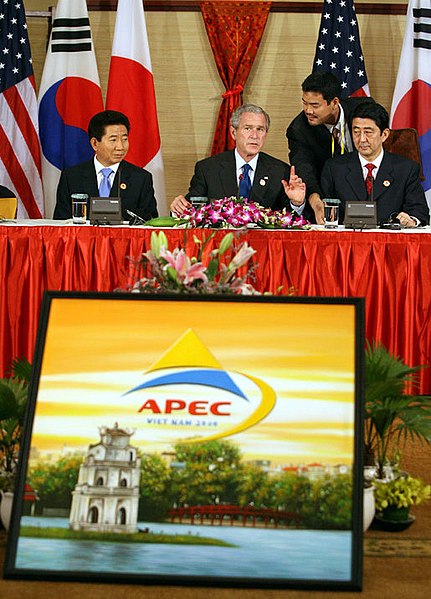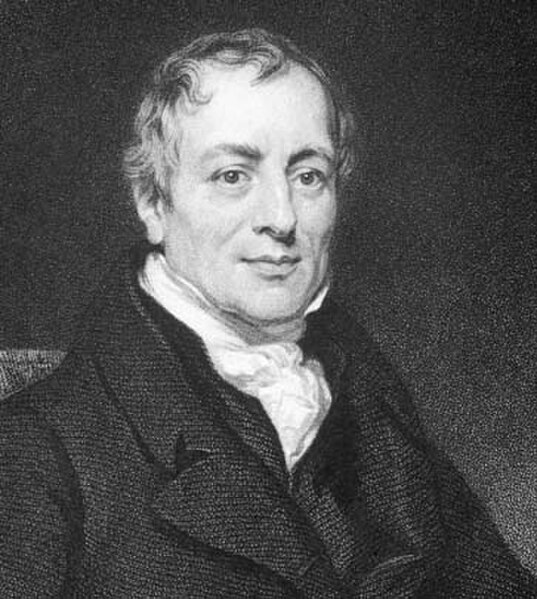Asia-Pacific Economic Cooperation
Asia-Pacific Economic Cooperation is an inter-governmental forum for 21 member economies in the Pacific Rim that promotes free trade throughout the Asia-Pacific region. Following the success of ASEAN's series of post-ministerial conferences launched in the mid-1980s, APEC started in 1989, in response to the growing interdependence of Asia-Pacific economies and the advent of regional trade blocs in other parts of the world; it aimed to establish new markets for agricultural products and raw materials beyond Europe. Headquartered in Singapore, APEC is recognized as one of the highest-level multilateral blocs and oldest forums in the Asia-Pacific region, and exerts significant global influence.
Former South Korean President Roh Moo-hyun with Former Japanese Prime Minister Shinzō Abe and Former U.S. President George W. Bush at APEC 2006 in Hanoi, Vietnam.
Image: Anthony Albanese portrait (cropped)
Image: His Majesty Bolkiah 20231216
Image: Prime Minister Trudeau's message on Christmas 2023 (0m 29s) (cropped)
Free trade is a trade policy that does not restrict imports or exports. In government, free trade is predominantly advocated by political parties that hold economically liberal positions, while economic nationalist and left-wing political parties generally support protectionism, the opposite of free trade.
Political poster from the British Liberal Party displaying their views on the differences between an economy based on free trade and protectionism. The free-trade shop is shown as full to the brim with customers due to its low prices. The shop based upon protectionism is shown as suffering from high prices and a lack of customers, with animosity between the business owner and the regulator.
David Ricardo
Britain waged two Opium Wars to force China to legalize the opium trade and to open all of China to British merchants.
Singapore is the top country in the Enabling Trade Index.








